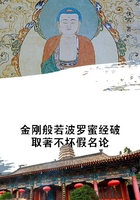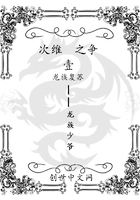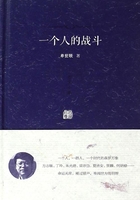Our own times furnish a parallel case. Suppose that a revolution should take place in Spain, that the Constitution of Cadiz should be reestablished, that the Cortes should meet again, that the Spanish Prynnes and Burtons, who are now wandering in rags round Leicester Square, should be restored to their country. Ferdinand the Seventh would, in that case, of course repeat all the oaths and promises which he made in 1820, and broke in 1823. But would it not be madness in the Cortes, even if they were to leave him the name of King, to leave him more than the name? Would not all Europe scoff at them, if they were to permit him to assemble a large army for an expedition to America, to model that army at his pleasure, to put it under the command of officers chosen by himself? Should we not say that every member of the Constitutional party who might concur in such a measure would most richly deserve the fate which he would probably meet, the fate of Riego and of the Empecinado? We are not disposed to pay compliments to Ferdinand; nor do we conceive that we pay him any compliment, when we say that, of all sovereigns in history, he seems to us most to resemble, in some very important points, King Charles the First. Like Charles, he is pious after a certain fashion; like Charles, he has made large concessions to his people after a certain fashion. It is well for him that he has had to deal with men who bore very little resemblance to the English Puritans.
The Commons would have the power of the sword; the King would not part with it; and nothing remained but to try the chances of war.
Charles still had a strong party in the country. His august office, his dignified manners, his solemn protestations that he would for the time to come respect the liberties of his subjects, pity for fallen greatness, fear of violent innovation, secured to him many adherents. He had with him the Church, the Universities, a majority of the nobles and of the old landed gentry. The austerity of the Puritan manners drove most of the gay and dissolute youth of that age to the royal standard. Many good, brave, and moderate men, who disliked his former conduct, and who entertained doubts touching his present sincerity, espoused his cause unwillingly and with many painful misgivings, because, though they dreaded his tyranny much, they dreaded democratic violence more.
On the other side was the great body of the middle orders of England, the merchants, the shopkeepers, the yeomanry, headed by a very large and formidable minority of the peerage and of the landed gentry. The Earl of Essex, a man of respectable abilities, and of some military experience, was appointed to the command of the parliamentary army.
Hampden spared neither his fortune nor his person in the cause.
He subscribed two thousand pounds to the public service. He took a colonel's commission in the army, and went into Buckinghamshire to raise a regiment of infantry. His neighbours eagerly enlisted under his command. His men were known by their green uniform, and by their standard, which bore on one side the watchword of the Parliament, "God with us," and on the other the device of Hampden, "Vestigia nulla retrorsum." This motto well described the line of conduct which he pursued. No member of his party had been so temperate, while there remained a hope that legal and peaceable measures might save the country. No member of his party showed so much energy and vigour when it became necessary to appeal to arms. He made himself thoroughly master of his military duty, and "performed it," to use the words of Clarendon, "upon all occasions most punctually." The regiment which he had raised and trained was considered as one of the best in the service of the Parliament. He exposed his person in every action with an intrepidity which made him conspicuous even among thousands of brave men. "He was," says Clarendon, "of a personal courage equal to his best parts; so that he was an enemy not to be wished wherever he might have been made a friend, and as much to be apprehended where he was so, as any man could deserve to be."
Though his military career was short, and his military situation subordinate, he fully proved that he possessed the talents of a great general, as well as those of a great statesman.
We shall not attempt to give a history of the war. Lord Nugent's account of the military operations is very animating and striking. Our abstract would be dull, and probably unintelligible. There was, in fact, for some time no great and connected system of operations on either side. The war of the two parties was like the war of Arimanes and Oromasdes, neither of whom, according to the Eastern theologians, has any exclusive domain, who are equally omnipresent, who equally pervade all space, who carry on their eternal strife within every particle of matter. There was a petty war in almost every county. A town furnished troops to the Parliament while the manor-house of the neighbouring peer was garrisoned for the King. The combatants were rarely disposed to march far from their own homes. It was reserved for Fairfax and Cromwell to terminate this desultory warfare, by moving one overwhelming force successively against all the scattered fragments of the royal party.
It is a remarkable circumstance that the officers who had studied tactics in what were considered as the best schools, under Vere in the Netherlands, and under Gustavus Adolphus in Germany, displayed far less skill than those commanders who had been bred to peaceful employments, and who never saw even a skirmish till the civil war broke out. An unlearned person might hence be inclined to suspect that the military art is no very profound mystery, that its principles are the principles of plain good sense, and that a quick eye, a cool head, and a stout heart, will do more to make a general than all the diagrams of Jomini. This, however, is certain, that Hampden showed himself a far better officer than Essex, and Cromwell than Leslie.















